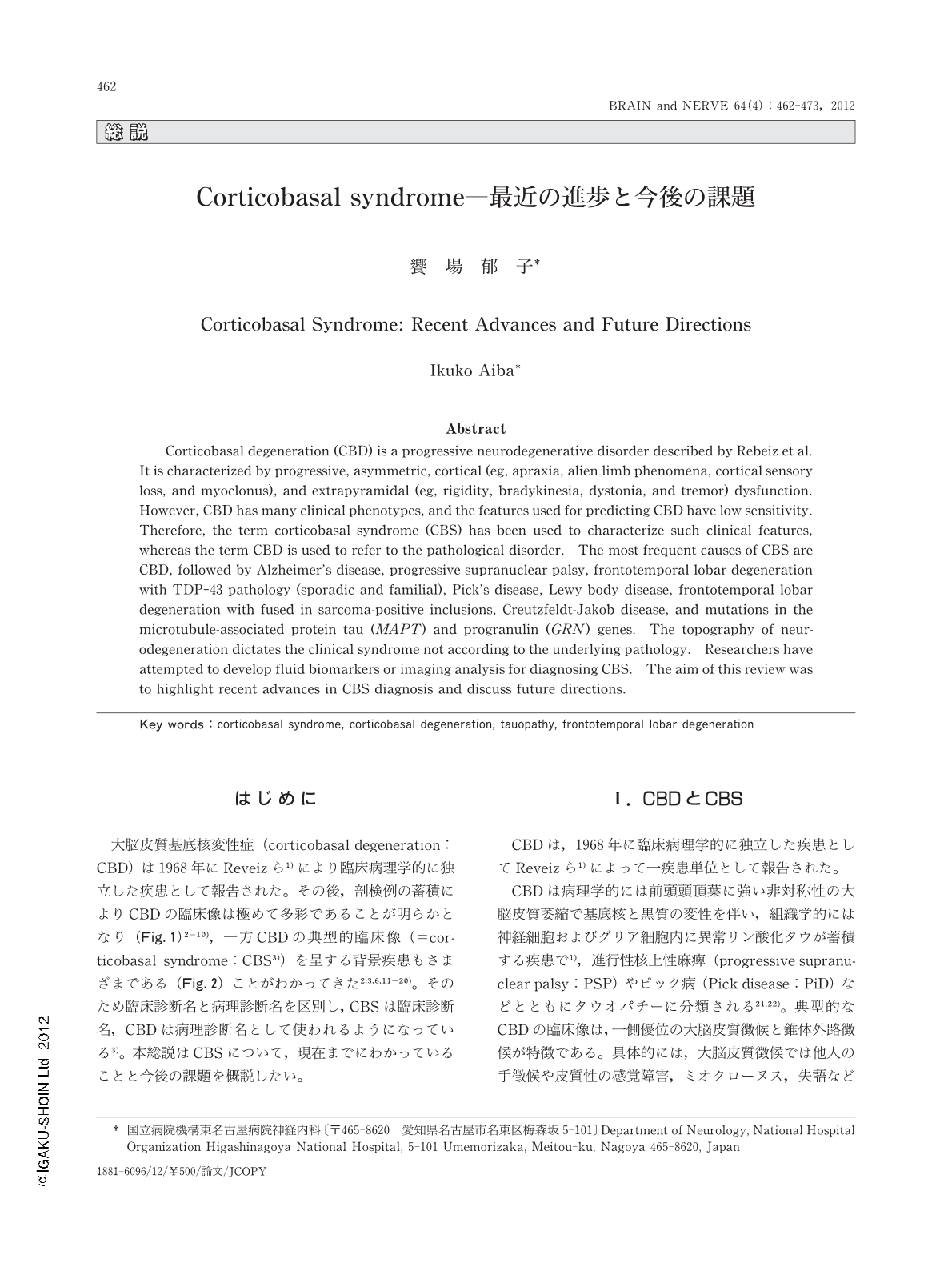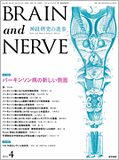Japanese
English
- 有料閲覧
- Abstract 文献概要
- 1ページ目 Look Inside
- 参考文献 Reference
- サイト内被引用 Cited by
はじめに
大脳皮質基底核変性症(corticobasal degeneration:CBD)は1968年にReveizら1)により臨床病理学的に独立した疾患として報告された。その後,剖検例の蓄積によりCBDの臨床像は極めて多彩であることが明らかとなり(Fig.1)2-10),一方CBDの典型的臨床像(=corticobasal syndrome:CBS3))を呈する背景疾患もさまざまである(Fig.2)ことがわかってきた2,3,6,11-20)。そのため臨床診断名と病理診断名を区別し,CBSは臨床診断名,CBDは病理診断名として使われるようになっている3)。本総説はCBSについて,現在までにわかっていることと今後の課題を概説したい。
Abstract
Corticobasal degeneration (CBD) is a progressive neurodegenerative disorder described by Rebeiz et al. It is characterized by progressive,asymmetric,cortical (eg,apraxia,alien limb phenomena,cortical sensory loss,and myoclonus),and extrapyramidal (eg,rigidity,bradykinesia,dystonia,and tremor) dysfunction. However,CBD has many clinical phenotypes,and the features used for predicting CBD have low sensitivity. Therefore,the term corticobasal syndrome (CBS) has been used to characterize such clinical features,whereas the term CBD is used to refer to the pathological disorder. The most frequent causes of CBS are CBD,followed by Alzheimer's disease,progressive supranuclear palsy,frontotemporal lobar degeneration with TDP-43 pathology (sporadic and familial),Pick's disease,Lewy body disease,frontotemporal lobar degeneration with fused in sarcoma-positive inclusions,Creutzfeldt-Jakob disease,and mutations in the microtubule-associated protein tau (MAPT) and progranulin (GRN) genes. The topography of neurodegeneration dictates the clinical syndrome not according to the underlying pathology. Researchers have attempted to develop fluid biomarkers or imaging analysis for diagnosing CBS. The aim of this review was to highlight recent advances in CBS diagnosis and discuss future directions.

Copyright © 2012, Igaku-Shoin Ltd. All rights reserved.


